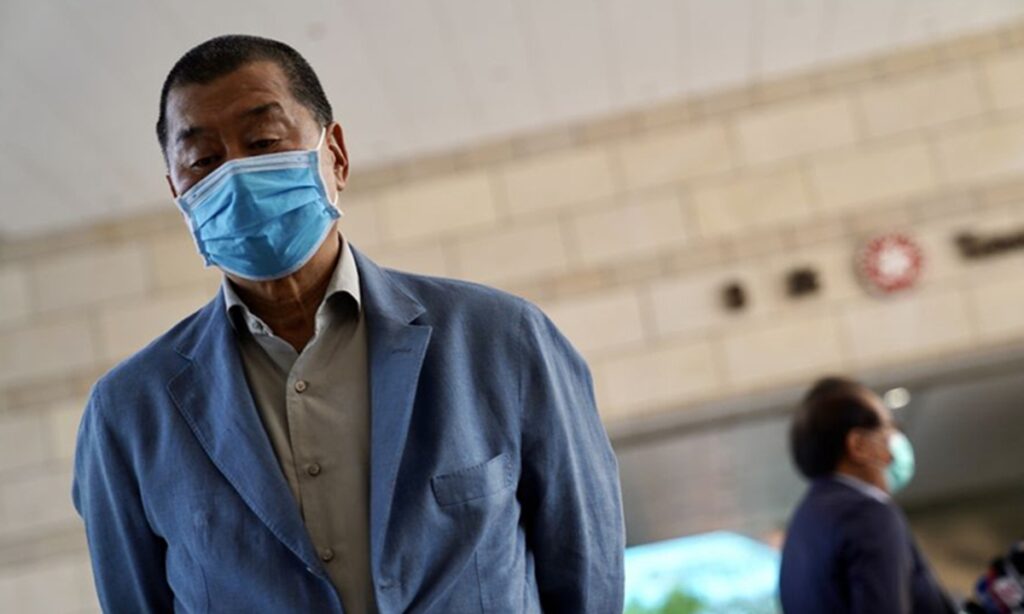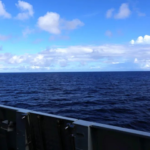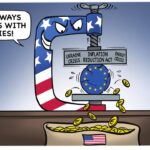A spokesperson for the Hong Kong and Macao Affairs Office of China’s State Council said on Monday that the Central People’s Government recently issued an official request to the Chief Executive of the Hong Kong Special Administrative Region (HKSAR) John Lee, asking him to submit a report on the HKSAR’s performance of its duty to safeguard national security, including the work of the region’s Committee for Safeguarding National Security, in accordance with the Law of the People’s Republic of China on Safeguarding National Security in the HKSAR (national security law for Hong Kong).
This is a necessary move to fully and accurately implement the “one country, two systems” principle, the enforcement of the central government’s overall jurisdiction and the safeguarding of national security. Lee immediately organized relevant research and implementation measures and notified the Hong Kong society, stating that he would submit a report to the central government very soon, and recommending at the same time that a request be made to the Standing Committee of the National People’s Congress to issue an interpretation in accordance with a relevant article of the national security law. This has been fully confirmed and firmly supported.
The spokesperson said that since the enactment of the law, the HKSAR has fulfilled its constitutional responsibility to safeguard national security in accordance with the law and has achieved notable results. However, great vigilance should be maintained against certain phenomena that have occurred recently in the handling of some cases of law violation on safeguarding national security in the HKSAR, the spokesperson noted.
According to the spokesperson, Jimmy Lai Chee-ying and his cohorts severely trampled on “one country, two systems” principle and the HKSAR Basic Law during the 2019 social unrest, severely impacting the constitutional order of the HKSAR and undermining Hong Kong’s prosperity and stability, and endangering national sovereignty, security, and development interests. The citizens of Hong Kong and people from all over China will never forget the tragic scenes that took place during the turmoil: roads in Hong Kong were blocked, subway stations were destroyed, shops were smashed, petrol bombs detonated on the streets and ordinary citizens were beaten up by mobs and even set on fire with gasoline. We will never forget Lai and the likes of him who attempted to promote a Hong Kong version of color revolution and publicly called for foreign sanctions on the mainland and Hong Kong, while also making a pledge to fight for the US. Their crimes must be investigated and punished by law.
The spokesperson stated that Lai is suspected of colluding with a foreign country or with external elements to endanger national security. However, a relevant court in Hong Kong granted the approval for a British lawyer to represent Lai in the case. The move is contrary to the provisions of the law on safeguarding national security in the HKSAR: namely that the executive authorities, legislature and judiciary of the region shall effectively prevent, suppress and impose punishment for any act or activity endangering national security in accordance with the law, said the spokesperson, adding that it also violates the legislative spirit and legal consistency of the law.
This has aroused strong indignation and fierce criticism from Hong Kong society, especially from staunch patriots who love Hong Kong and legal professionals. They all said that some judges simply applied the principles, procedures and habits of hearing general cases and the so-called international standards to restrict the application and implementation of the national security law. It is a disregard of the constitutional status of the law and a disregard of the authority and overriding nature of the law. It sets aside national security and the prosperity and stability of Hong Kong. This has posed a major challenge to fair trial of cases in accordance with laws and to the accurate implementation of the national security law for Hong Kong, and has brought major risks to the maintenance of national security in the HKSAR, thus this matter deserves great attention.
The spokesperson said that the chief executive is the head of the Hong Kong Special Administrative Region and the chairperson of the Committee for Safeguarding National Security of the Hong Kong Special Administrative Region. He shall be accountable to the Central People’s Government for affairs relating to safeguarding national security in the Hong Kong Special Administrative Region. Hong Kong practices an executive-led system with the Chief Executive at its core. Under the chief executive, the executive, legislative branches and judiciary perform their duties and share the responsibility and obligation of the SAR to safeguard national security. Chief Executive Lee submits reports and puts forward relevant suggestions according to the instructions of the central government, which fully demonstrates his responsibility as the “head ” and “first responsible person” of the HKSAR. The Committee for Safeguarding National Security of the Hong Kong Special Administrative Region bears the main responsibility for maintaining national security in the Hong Kong SAR. The central government fully supports it in fulfilling its statutory duties and exercising its statutory powers, and taking legal necessary measures to prevent and resolve various risks and hidden dangers that threaten national security.
The spokesperson emphasized that safeguarding national sovereignty, security and development interests are the highest aims of the “one country, two systems.” The central government bears the fundamental responsibility for the national security affairs of the HKSAR and will thoroughly implement the requirements of improving the HKSAR’s judicial and legal systems which are clearly stated in the report to the 20th National Congress of the CPC, to ensure the national security law for Hong Kong is implemented in a complete, accurate, and uncompromising manner and to ensure that national security is effectively maintained.
(Global Times)




